With a truly wide-ranging scientific programme, the FENS Forum 2022 will bring together top experts in all fields of neuroscience from Europe and around the world.
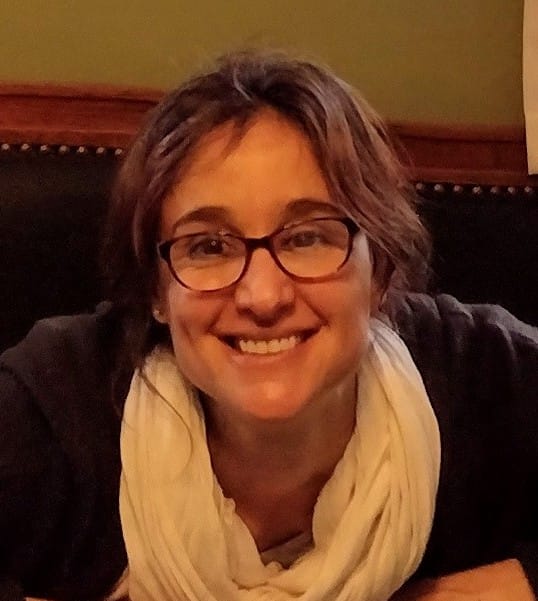
Maria Elena Avale
Argentina National Research Council, ArgentinaResearcher of the Argentinean National Scientific and Technical Research Council (CONICET).
Group Leader at Institute for Research on Genetic Engineering and Molecular Biology (INGEBI-CONICET)
Associate Professor at University of Buenos Aires
Short bio
Graduated in Biology at Facultad de Ciencias Exactas y Naturales, University of Buenos Aires, Argentina. In 2004 obtained a PhD in Biology (Molecular Neuroscience), at University of Buenos Aires, mentored by Prof. Marcelo Rubinstein. Between 2005 and 2008 pursued postdoctoral training at Pasteur Institute (Paris) mentored by Prof Jean-Pierre Changeux, to investigate the role of nicotinic receptors in executive behaviors. Motivated by a deep interest in investigating human neurological diseases, in 2009 joined the Institute of Psychiatry at King’s College London where she performed basic research with a translational perspective in the field of neurodegeneration.
In 2013 joined the Argentinean National Scientific and Technical Research Council (CONICET) to start her own research lines, funded by Return Home Fellowships from IBRO and CAEN-ISN. Since 2015 has been leading a highly motivated young research team, the laboratory Experimental Therapeutics in Neurodegenerative Processes. They investigate molecular mechanisms involved in neurodegeneration, particularly in tauopathies, to develop potential therapeutic strategies. Her research is currently funded by CurePSP and the Argentina Ministry of Science.
Since 2016 has been chief of instructors / Adjunct professor at University of Buenos Aires, Facultad de Ciencias Exactas y Naturales.
Maria Elena Avale
Argentina National Research Council, Argentina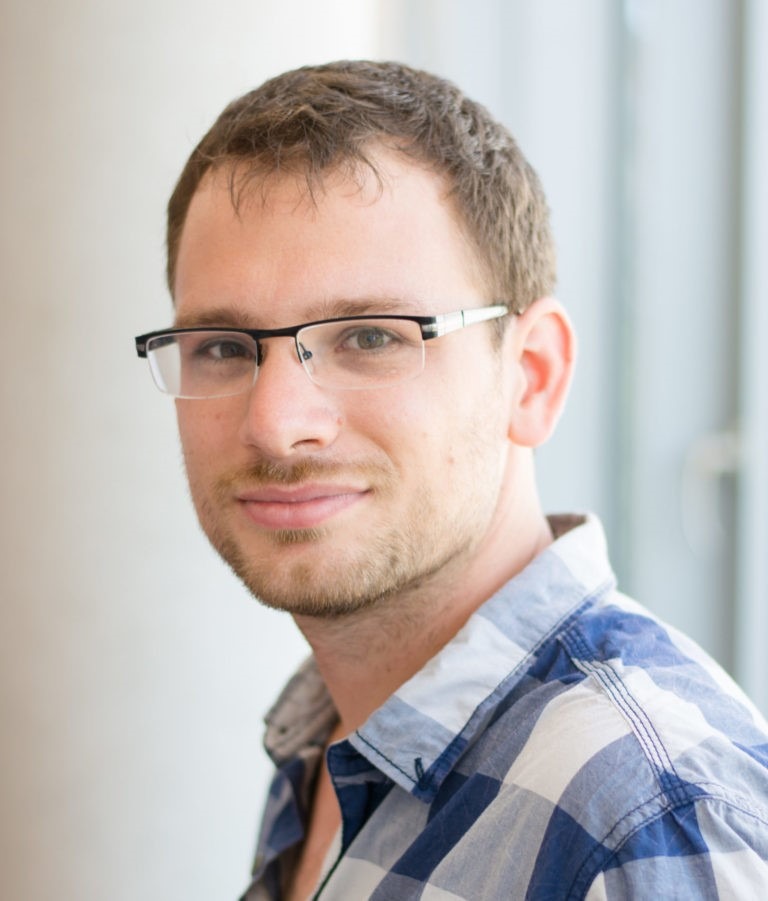
Tom Baden
University of Sussex, United KingdomTom Baden (UK) is a professor of Neuroscience at the Sussex Neuroscience, School of Life Sciences, University of Sussex. Prof. Baden studies how neurons and networks compute, using the beautiful collection of circuits that make up the vertebrate retina as a model. His early-career contributions include a near-comprehensive functional census of the mouse retina’s complement of excitatory neurons (Neuron 2013, Curr Biol 2013, Nature 2016, 2017), and the demonstration that retinal bipolar cells encode visual stimuli by both and graded and spiking responses (Curr Biol. 2011; Nat Neurosci 2011; Curr Biol 2013, Nature 2017). With the launch of his own lab in 2016, he shifted focus to study how neural computation can be linked to its “natural purpose”. For this, Baden’s research team interrogate vertebrate visual circuits in the context of animals’ natural history and visual ecology. Tom Baden is also a FENS Kavli Network of Excellence Alumni. Link to lab: www.badenlab.org
Tom Baden
University of Sussex, United Kingdom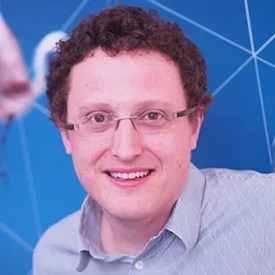
Timothy Behrens
Oxford University and University College London, United KingdomTim Behrens is Professor of Computational Neuroscience at Oxford University and University College London, and a Wellcome Trust Research Fellow. He studies how our brains learn and represent knowledge about the world in service of flexible behaviour. His work aims to explain complex human behaviour but is grounded in comparisons with animal models and formal mathematical theory. He has also developed widely used approaches for measuring brain connections non-invasively.
Timothy Behrens
Oxford University and University College London, United Kingdom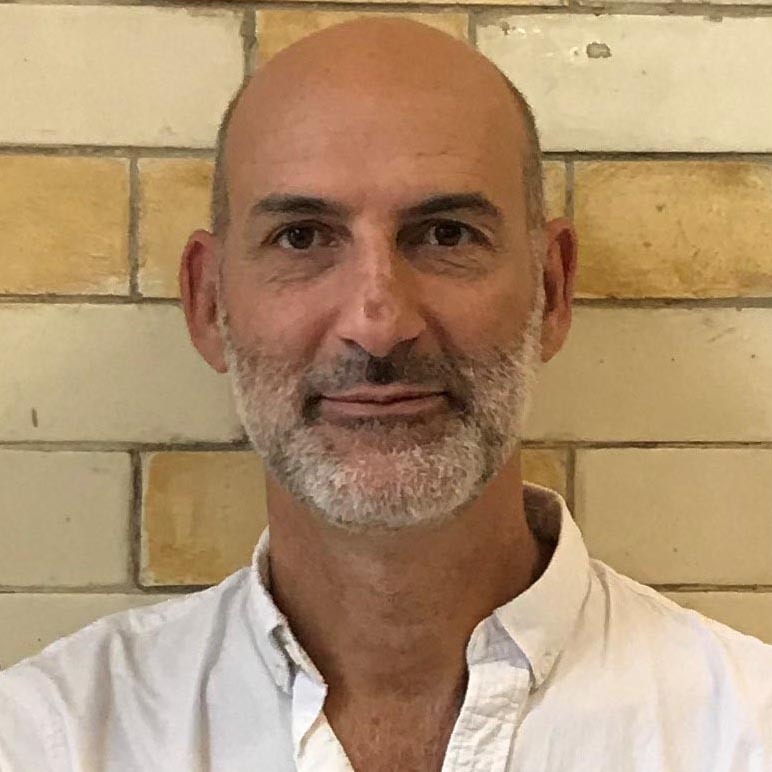
Matteo Carandini
University College London, United KingdomMatteo Carandini is the GlaxoSmithKline / Fight for Sight Professor of Visual Neuroscience at University College London (UCL), where he co-directs a laboratory together with Kenneth Harris (www.ucl.ac.uk/cortexlab). Carandini holds a Laurea summa cum laude in Mathematics from the University of Rome (1990) and a PhD in Neural Science from New York University (1996). Before joining UCL in 2007, he ran laboratories in Zurich (1999-2002) and San Francisco (2002-2008). Carandini's research focuses on the laws that govern the activity of large populations of neurons in the mouse brain, the computations performed by these populations, the circuits that support these computations, and the role of these computations in guiding behavior. He is a leader of the Neuropixels consortium, which develops next-generation probes to record from large populations of neurons (www.ucl.ac.uk/neuropixels). He is a founding member of the International Brain Laboratory, where laboratories around the world join forces and share data to understand the neural basis of decision-making in the whole mouse brain at the neuronal level in an open-science approach (www.internationalbrainlab.org).
Matteo Carandini
University College London, United Kingdom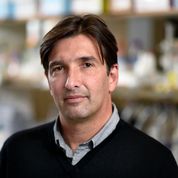
Mauro Costa-Mattioli
Baylor College of Medicine, USADr. Mauro Costa-Mattioli was born in Uruguay and his childhood unfolded in a society that went from the repression of fascism to the freedom of democracy. Inspired by the advancements in molecular biology and genetics, he did his bachelor’s degree in biology at the University of the Republic in Montevideo. He then went to France where he received his PhD from the University of Nantes. He was a post-doctoral fellow in the department of biochemistry at McGill University (Canada). In 2008, he joined the Department of Neuroscience at Baylor College of Medicine (Houston), where he is currently a Professor, Cullen Foundation Endowed Chair in Neuroscience, and the Director of the Memory & Brain Research Center.
Costa-Mattioli has elucidated central mechanisms underlying neurological dysfunction. Specifically, he discovered that the protein homeostasis network dubbed the integrated stress response (ISR) is a universal regulator of long-term memory formation, and its activation the main causative mechanism underlying cognitive dysfunction in a wide range of memory disorders. His work has not only impacted the neurobiology of memory, but also industry efforts to develop drugs that target the ISR to promote brain heath. More recently, he serendipitously discovered that specific microbes in the gut could modulate brain function and behavior in a very powerful way.
Dr. Costa-Mattioli has received numerous awards, including the international Eppendorf & Science Prize in Neurobiology, the Searle Scholar award, the Whitehall Scholar Award, the International society for neurochemistry’s young investigator award, the Michael E. DeBakey excellent in research award, the UCSF presidential award, and serves in several editorial boards.
Mauro Costa-Mattioli
Baylor College of Medicine, USA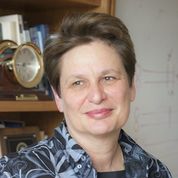
Catherine Dulac
Harvard University, USACatherine Dulac is a Howard Hughes Medical Institute Investigator, Higgins Professor of Molecular and Cellular Biology and Lee and Ezpeleta Professor of Arts and Sciences at Harvard University.
Dr. Dulac grew up in Montpellier, France, graduated from the Ecole Normale Supérieure, Paris, and received her PhD from the University of Paris VI. She was a postdoctoral fellow at Columbia University and joined the faculty of Harvard as a junior faculty, before becoming Professor of Molecular and Cellular Biology, and Chair of Harvard's Department of Molecular and Cellular Biology (from 2007 till 2013). She is a member of the US National Academy of Sciences, the French Academy of Sciences, and the American Philosophical Society. She is a Chevalier de la Legion d’Honneur and a recipient of multiple awards including the Karl Spencer Lashley Award, the Ralph W. Gerard Prize and the Breakthrough Prize in Life Sciences. She is a member of numerous Scientific Advisory Boards in the US and abroad, and served as the Co-Chair of the National Institutes of Health Advisory Committee to the NIH Director (ACD), BRAIN Initiative 2.0 Working Group. Her work explores the identity and function of neural circuits underlying social behaviors in mice, and the role of genomic imprinting in the adult and developing brain. Dr. Dulac’s laboratory has helped decipher the unique characteristics of social recognition, including the sensory cues that trigger distinct social behaviors, the nature and identity of social behavior circuits in males and females and their modulation by the animal physiological status.
Catherine Dulac
Harvard University, USA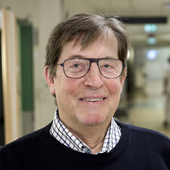
Lars Edvinsson
Lund University, SwedenProfessor Edvinsson is leading expert in the field of (1) cerebral circulation and (2) migraine. He is world recognized for his work on vascular innervation and receptor regulation. His extensive research has been a major contributor to what is known about the roles of the cerebral vasculature in health and diseases such as stroke and primary headaches. He has written the major textbook in the field; Cerebral Blood Flow & Metabolism (1993 Raven Press, 2002 Lippincott Williams Wilkins). In the field of headache, he is now immediate past-president of The International Headache society. Recently, his groundbreaking work on the sensory system has resulted in new medicine being introduced small molecular CGRP-blockers for acute attacks and antibodies towards CGRP or CGRP-receptors as prophylaxis chronic migraine. For this work he received the Brain Prize 2021, the most prestigious award in neuroscience.
Lars Edvinsson
Lund University, Sweden
Damien Fair
University of Minnesota, USADamien Fair is a Cognitive Neuroscientist and Professor in the Institute of Child Development and the Department of Pediatrics at the University of Minnesota. He is also the Redleaf Endowed Director of the Masonic Institute of the Developing Brain. Combining technical advances in functional MRI, advanced mathematics, and expertise in psychology and neuroscience, Fair has been able to demonstrate several basic principles of brain development and its relationships to typical and atypical behaviors. In 2012, he was awarded the Presidential Early Career Award for Scientists and Engineers Issued by President Barack Obama and the White House. In 2020 he was named a John D. and Catherine T. MacArthur Fellow. He currently serves on the Board of Scientific Counselors for the National Institute on Alcohol Abuse and Alcoholism and Council for the National Institute of Child Health and Human Development. He also serves on the Scientific Research Council for the Child Mind Institute. Fair is deeply committed to public service, community engagement, and STEM education. He founded and directed the Youth Engaged in Science (YES!) initiative and the OHSU Fellowship for Diversity and Inclusion. He’s also served on the Society for Neuroscience Public Education and Communication Committee, Press Committee, Workforce and Training Groups, and maintained a position on the BrainFacts.org editorial board. He has given several briefings to the Congressional Neuroscience Caucus and the American Brain Coalition on the intersection of brain development and policymaking. Fair aims to advance the intersection of cognitive psychology and neuroscience and widen the reach of those who are trained and ‘touched’ by the efforts.
Damien Fair
University of Minnesota, USA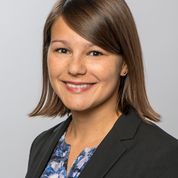
Julijana Gjorgijeva
Technical University of Munich and The Max Planck Institute for Brain Research, GermanyJulijana Gjorgjieva is a Professor of Computational Neurosciences at the School of Life Sciences at the Technical University of Munich (TUM) and a Research Group Leader at the Max Planck Institute for Brain Research in Frankfurt, Germany. Her work focuses on the decoding mechanisms in the processing of sensory signals and the development of the relevant neuronal networks. In 2011, she completed her PhD in applied mathematics at the University of Cambridge (UK) and spent five years as a post-doctoral researcher at Harvard University and Brandeis University (US). Prof. Gjorgjieva is a member and is on the steering committee of the Bernstein Network for Computational Neuroscience and a member of the FENS-Kavli Network of Excellence.
Julijana Gjorgijeva
Technical University of Munich and The Max Planck Institute for Brain Research, Germany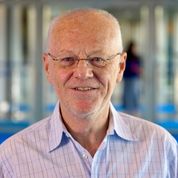
Peter Goadsby
King's College London, United Kingdom & University of California, Los Angeles, USAMy major research interests are in the basic mechanisms of primary headache disorders, such as migraine and cluster headache, in both experimental and clinical settings, and translating these insights into their better management. I am Professor of Neurology at University of California, Los Angeles and at King’s College London, UK. I have led the Biomedical Research Centre Pain theme and acted as National Lead for Neurological Disorders for the Clinical Research Network, NIHR UK. I am a Trustee of the Organisation for the Understanding of Cluster Headache (OUCH UK) and of the Migraine Trust.
Peter Goadsby
King's College London, United Kingdom & University of California, Los Angeles, USA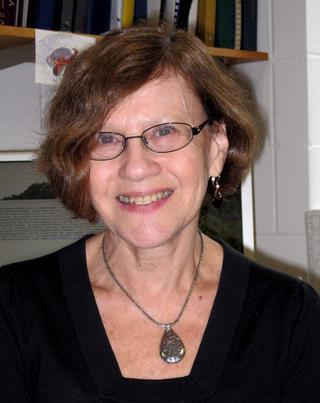
Suzanne Haber
University of Rochester, USADr. Suzanne N. Haber, Ph.D. Professor, Department of Pharmacology and Physiology, University of Rochester School of Medicine and Visiting Professor, Department of Psychiatry, Harvard medical School.
Bio:
Suzanne N. Haber is The Dean’s Professor in the Department of Pharmacology and Physiology, with secondary appointments in the Departments of Brain and Cognitive Sciences, Neuroscience, and Psychiatry at the University of Rochester and Visiting Scientist at McLean Hospital. She received her Ph.D. in Neuroscience from Stanford University in 1978 and did her postdoctoral research in neuroanatomy at the University of Minnesota (Dr. Robert Elde) and at MIT (Dr. Walle Nauta). Dr. Haber’s research interests are in the neural networks that underlie incentive-based learning and decision-making with a focus on circuit dysfunction in mental health illnesses. Her work centers on the complex connections of the prefrontal cortex and basal ganglia. Recent studies also focus on the organization of pathways and the ability to segment large white matter bundles based on their cortical origin. These anatomic connectivity studies, carried out in nonhuman primates, are linked to diffusion and resting state functional MRI to better understand how these imaging modalities reflect the anatomic connections. This work paves the way for identifying circuit abnormalities that may underlie psychiatric illnesses. They also help develop and guide invasive therapeutic targets and understand how target locations might impact different circuits. Dr. Haber has received several awards including a NIMH Merit Award, Distinguished Investigator Award (NARSAD), and the Gold Medal Award from the Society of Biological Psychiatry. She is presently principal investigator of several grants from the NIMH, including a multi-institutional Conte Center: “Neurocircuitry of OCD: Effects of Modulation”. She serves on several, foundation boards including, Brain and Behavior Research Foundation, and the Foundation for OCD Research.
Suzanne Haber
University of Rochester, USA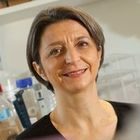
Sandrine Humbert
INSERM, FranceSandrine Humbert, research director at the French Institute for Health and Medical Research, Inserm, leads a team ``Neural progenitors and brain pathologies`` at the GIN, Grenoble Institute Neurosciences. Trained as a biotech engineer, S. Humbert worked during her PhD on transcription factors (JM Egly, IGBMC, Strasbourg). She then completed two post-doctoral stays (LH Tsai, Harvard Medical School, Boston and F Saudou, Institute Curie, Orsay) during which she focused on brain development and neurodegenerative processes. Since 2009, her team combines cellular approaches and analysis of mouse models to understand the physiological functions of huntingtin, the protein mutated in Huntington’s disease (HD), and to characterize the mechanisms underlying HD pathogenesis.
In the last ten year, her work described molecular mechanisms underlying the role of huntingtin in tissue development and maintenance. Her lab found that huntingtin regulates the division and maturation of progenitor/stem cells in the central nervous system, but also in peripheral tissues. Recently, the major contribution of her team to the field was to show that huntingtin regulates several steps of cortical development. Mutant huntingtin impairs these developmental steps and the developing HD brain is thus affected in mouse models of HD and in human HD mutation carriers. This establishes that HD has a neurodevelopmental component and is not solely a degenerative disease. She received the Dagnan-Bouveret prize of the French Science Academy (2017) and the Marie-Paule Burrus prize, Foundation for Medical Research-France (2018).
Sandrine Humbert
INSERM, France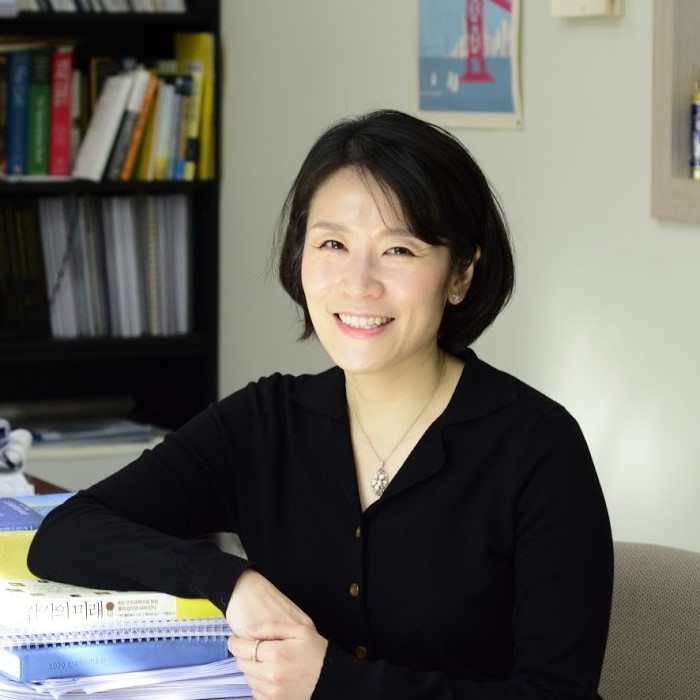
Seung-Hee Lee
Korea Advanced Institute of Science and Technology, KoreaDr. Seung-Hee Lee is an Associate Professor at KAIST of Korea. She graduated from Seoul National University and earned her Ph.D. in biology in 2007. Her doctoral advisor was Dr. Bong-Kiun Kaang, with whom she studied ``molecular and cellular mechanisms of long-term synaptic plasticity in Aplysia.`` She subsequently conducted postdoctoral research at the University of California, Berkeley, in Dr. Yang Dan's laboratory, where she examined the functional roles of different types of interneurons in the mammalian visual cortex. Dr. Lee's current research is focused on understanding neural circuit mechanisms of multisensory processing and perceptual decision-making. With the impactful research into how the mammalian cortex integrates sensory information and adjusts perceptual behaviors in a dynamic sensory context, Prof. Lee has led her team to make significant discoveries, including circuits in the parietal cortex resolving audio-visual conflicts and in the cingulate cortex gating visuomotor transformation as well as a key role for the neuropeptide somatostatin in improving visual processing and cognitive behaviors.
Seung-Hee Lee
Korea Advanced Institute of Science and Technology, Korea
Christian Lüscher
University of Geneva, SwitzerlandChristian Lüscher is a neurologist & full professor of neuroscience at the University of Geneva.His group’s research focuses on the circuit alteration underlying drug addiction and neural mechanisms of motivated behavior. The group has identified drug-evoked synaptic plasticity as
a cellular substrate of circuit alterations in addiction. Several projects now aim at translating the advances of circuit neuroscience to human research. He is behind the idea of “optogenetically inspired deep brain stimulation” (short OptoDBS), drawing blueprints for novel stimulation protocols based on optogenetic investigations.During his training as an MD in Lausanne and Berne, he quantified the effects of axon morphology on action potential proportion in dorsal root ganglion cells. As a postdoctoral fellow at the University of California San Francisco from 1996-1999, his work provided evidence for glutamate receptor mobility as a mechanism of synaptic plasticity. With a career development award from the Swiss National Science Foundation, he established his lab in Geneva, where he was appointed associate (2003) and full professor (2009). He has maintained a clinical activity as an attending for movement disorders at the Geneva University Hospital.
Christian Lüscher has published 70+ original articles cited more than 17’000 times. His core funding comes from the Swiss National Science Foundation and the ERC (advanced grants in 2013 and 2021). He is the laureate of several prizes, including the Cloëtta Prize (2010), the
Koetzer Prize (2016), the Ott Prize (2017), and the Otto Naegeli Prize (2020). He has mentored 19 graduate students and 29 postdocs, many of whom are now leading scientists in academia, industry, and administration. His trainees are among the laureates of the Pfitzer Prize, Volker Henn Award, or the Science PINS Prize. Christian Lüscher is a member of the Swiss Academy of Medical Sciences senate and serves on many local, national, and international committees to defend the scientific community’s interests. Since 2019 he has been the president of the basic science section of the Geneva medical faculty.
Christian Lüscher
University of Geneva, Switzerland
Mackenzie Mathis
EPFL, SwitzerlandProf. Mackenzie Mathis is the Bertarelli Foundation Chair of Integrative Neuroscience and an Assistant Professor at the Swiss Federal Institute of Technology, Lausanne (EPFL). Following the award of her PhD at Harvard University in 2017 as an NSF Fellow with Prof. Naoshige Uchida, she was awarded the prestigious Rowland Fellowship at Harvard to start her independent laboratory (2017-2020). Before starting her group, she worked with Prof. Matthias Bethge at the University of Tübingen in the summer of 2017 with the support of the Women & the Brain Project ALS Fellowship. She is an ELLIS Scholar, and her work has been recently featured in the news at Bloomberg BusinessWeek, Nature, and The Atlantic.
Her lab works on mechanisms underlying adaptive behavior in intelligent systems. Specifically, the laboratory combines machine learning, computer vision, and experimental work in rodents with the combined goal of understanding the neural basis of adaptive motor control, which may lead to new avenues in therapeutic research for neurological disease.
Mackenzie Mathis
EPFL, Switzerland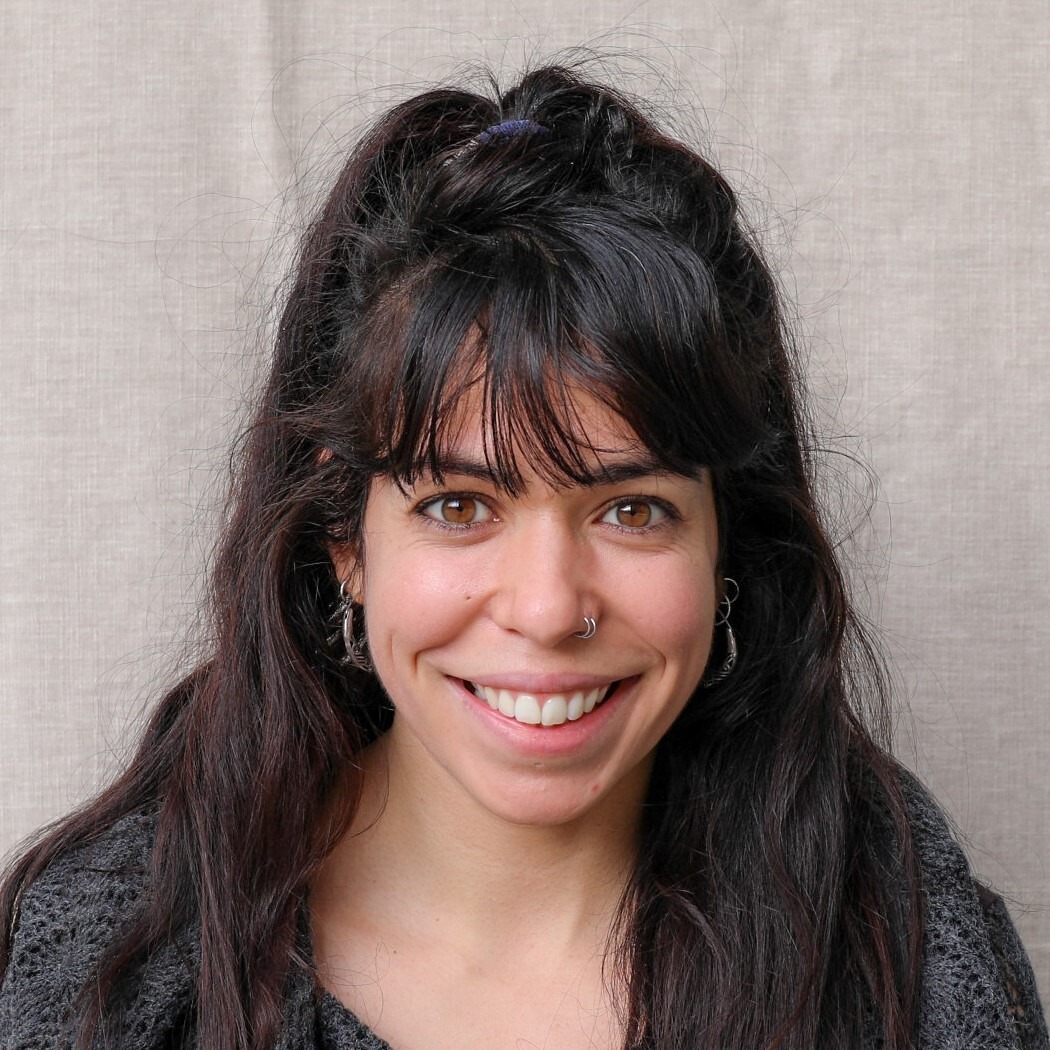
Sara Mederos-Crespo
The Sainsbury Wellcome Centre for Neural Circuits and Behaviour, United KingdomSara Mederos is a Postdoctoral Fellow at The Sainsbury Wellcome Centre for Neural Circuits and Behaviour (London, UK). She was originally trained in Biochemistry, graduated in 2013 at the University Autonoma of Madrid. She made her first steps in research during her bachelor's degree, studying novel NMDAR pathways under pathological conditions ( Diaz-Guerra Lab, Alberto Sols Institute, CSIC. Spain). In 2015 throughout her Master’s degree in Neuroscience, she focused on Alzheimer Disease and the role of epigenetic targeting drugs as therapeutic treatments at the Gertrudis Perea Lab (Cajal Institute, CSIC). She was awarded with a Spanish Ministry of Science and Technology fellowship to perform the Doctoral Thesis. Her Doctoral thesis at the Perea Lab (2015-2019, Cajal Institute, CSIC) was focused on characterizing the particular features that dictate the GABAergic signaling to astrocytes in prefrontal cortex and their role in cognitive processing (Mederos et al. Nat Neurosci. 2021). She was pioneering on using melanopsin as a new optogenetic approach to manipulate astrocyte calcium signaling and extending the toolbox for neuron-astrocyte studies in the field (Mederos et al Glia 2019).
Her work has explore the complex relationships established by neurons and astrocytes in different scenarios, from hippocampus to cerebral cortex in young and aging brains (eLife 2016, Glia 2017, Diabetes 2017). Sara Mederos’ work has significantly contributed to reveal the complexity and richness of the communication between astrocytes and excitatory and inhibitory neurons for brain function. In fact, her recent work (Nat. Neurosci 2021) has demonstrated the critical role of astrocytes for decision-making and goal-directed behaviors. Her work demonstrated that knock down GABAb receptors in astrocytes from the medial prefrontal cortex altered neuronal firing during decision-making tasks and induced cognitive impairments. Astrocyte stimulation with melanopsin in those knockout mice did rescue mouse cognitive defects, underscoring astrocytes' importance in fine-tuning cortical activity during behavior.
During her PhD, she visited recognized international laboratories, such as Dr. Ponomarenko’s lab (Heinrich Heine University Dusseldorf, Germany) and Dr. Buzsaki’s lab (NYU Langone Health, NY, US), that extended her formation and interest in system neuroscience for a better understanding of neural circuits and behavior. Following this keen interest to unravel the neuronal coding behind different behaviors, in 2020 she enrolled at The Sainsbury Wellcome Centre for Neural Circuits and Behaviour (London, UK). At the Hofer Lab, she is currently focused on the study of neuronal codification of instinctive reactions essential for animals' survival; in particular, how inputs to subcortical structures are organized and shaped by experience and learning, to ensure store of new information and thus constantly adapt to novel environmental conditions.
Sara Mederos has been recognized by different fellowships and awards including: Laia Acarin Prize 2019, granted by Spanish Glial Network; Three Minute Thesis Prize for Science (2019); Alberto Rábano Prize 2019 to Best PhD Thesis in Basic Neuroscience, granted by Fundacion Romanillos; and EMBO Short Term Fellowship.
When not engaged in her scientific research, Sara Mederos finds inspiration and motivation in hiking and climbing in the mountains and crags, exploring outdoors with her dog. Nature together with reading are the best ways she finds to unwind.
Sara Mederos-Crespo
The Sainsbury Wellcome Centre for Neural Circuits and Behaviour, United Kingdom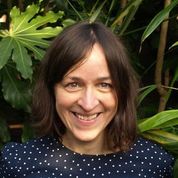
Irene Miguel-Aliaga
Imperial College London, United KingdomIrene Miguel-Aliaga is Professor of Genetics and Physiology at the MRC London Institute of Medical Sciences, Imperial College London (UK). She received her PhD in Genetics from the University of Oxford (UK) and explored how neurons develop during postdoctoral work at Harvard (USA), Linköping University (Sweden) and NIMR (now Crick Institute, UK). First at Cambridge and now in London, her research group is investigating how and why the intestine communicates with other organs such as the brain. Her lab was one of the first to initiate the study of the brain-gut axis in Drosophila: work that they have now extended to mouse and human models. Their work is revealing that the brain-gut axis of males and females is very different, which impacts food intake, gamete production and tumour susceptibility. Her lab has also investigated mechanisms of intestinal interoception, revealing unexpected roles for intestinal metal sensing in the regulation of feeding and growth control. Irene was the recipient of an ERC Starting Grant and currently holds an ERC Advanced Grant. She was elected to the EMBO YIP programme in 2012, to EMBO in 2017 and to the Academy of Medical Sciences in 2019. She was also awarded a Suffrage Science Women in Science award in 2018.
Irene Miguel-Aliaga
Imperial College London, United Kingdom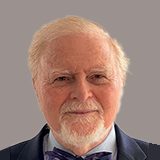
Michael Moskowitz
Harvard Medical School, USAMichael A Moskowitz, M.D. is Professor of Neurology at Harvard Medical School at the Massachusetts General Hospital where he serves as Senior Scientist in the Depts of Radiology and Neurology. An international authority on migraine and stroke, he transformed the migraine field by redirecting its focus to vasoactive neuropeptides released from trigeminal nerves in the meninges more than 40 years ago. The field has become a triumph of translational research with at least 5 drug families based on his formulation and work and those of his co-recipients of The 2021 Brain Prize. In the field of migraine research, he is credited with: (1) discovering the trigeminal innervation to the circle of Willis (2) identifying the first vasoactive peptide in this pathway (3)discovering prejunctional 5-HT receptors that block neuropeptide release and explain the therapeutic actions of ergots and triptans that led to development of a 5-HT1F agonist, now used in the clinic. He also identified the first endogenous trigger for migraine pain (cortical spreading depression) and was the first to find an inflammatory signal within the meninges in patients with migraine and visual auras. He received the Translational Neuroscience Award from the Reemtsma Foundation (Max-Planck -Gesellschaft) plus the highest award bestowed for stroke research by the American Heart/Stroke Association(Thomas Willis Lecture). In 2007, he earned the Lifetime Achievement Award for Mentoring from Harvard Medical School and holds two honorary degrees. He served as President of the International Soc Cerebral Blood Flow and Metabolism and International Headache Society.
Michael Moskowitz
Harvard Medical School, USA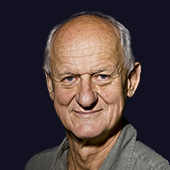
Jes Olesen
University of Copenhagen, DenmarkTITLES
Professor of Neurology, dr.med. (Copenhagen, Denmark), dr. hon.c. (Rome, Italy), dr. hon.c. (Yekaterinburg, Russia), fellow of the Royal College of Physicians (FRCP)
PERSONAL DATA AND MEDICAL CAREER
Born 9.9.1941 in Hobro, Denmark. M.D. University of Copenhagen 1967. Specialist education in neurology at major teaching hospitals in Copenhagen. The National Hospital, Queen Square, London. Cornell Medical Center, New York. Consultant neurologist. Gentofte Hospital 1985-1993
Glostrup Hospital 1993-. Founder Danish Headache Center 2001-.
ACADEMIC CAREER
Danish thesis 1974. Professor of Neurology, University of Copenhagen 1985 -. Chair, Lundbeck Foundation Center for Neurovascular Signaling 2006-2013. Visiting professor Harvard, 1999 and UCLA 2009.Chair Center for Experimental Headache Research 2016-
SCIENTIFIC JOURNALS
Associate Editor of Cephalalgia and Pain. Editorial board of several journals.
SOCIETIES
President of Danish Headache Society, Scandinavian Migraine Society, International Headache Society, Danish Stroke Association, Year of the Brain 1997 campaign, European Federation of Neurological Societies (EFNS) and European Brain Council (EBC).
HONORS
Honorary member Australian, German, Austrian and International headache societies and of the Austrian, French, British, German and Polish Neurological Societies and of European Federaton of Neurological Associations (EFNA) and European Federation of Neurological Societies (EFNS). Great Nordic Research Prize and the Brain Prize of the Lundbeck Foundation and many other national and international prizes.
RESEARCH
Citations: Google Scholar 82487.
H-Factor: Google Scholar 133.
i/10-index: Google Scholar 666.
729 articles in refereed journals, 235 book chapters etc, 35 books.
Has supervised 18 doctoral and 45 Ph.D. dissertations.
Invited speaker at several international meetings each year.
MAIN CURRENT RESEARCH INTERESTS
Headache classification and genetics. Signaling molecules in migraine, novel targets for drug development, animal and human migraine models.
Jes Olesen
University of Copenhagen, Denmark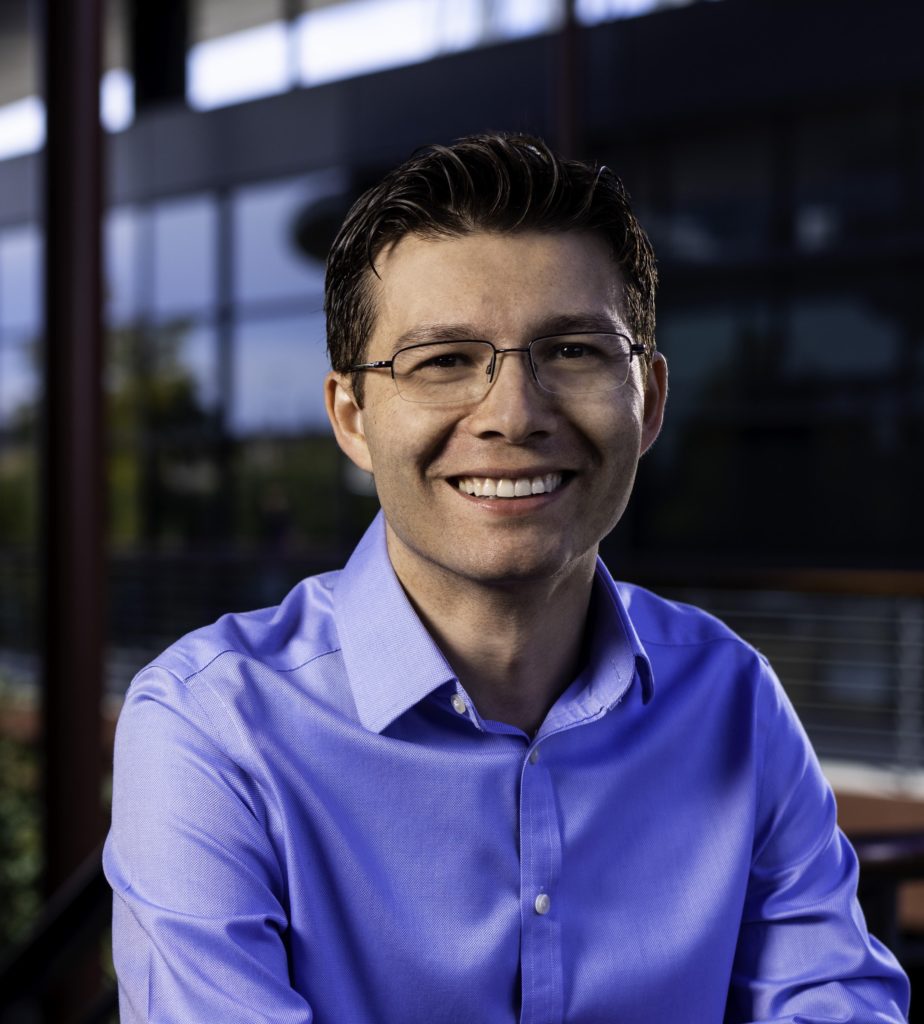
Sergiu Pasca
Stanford University, United StatesDr Sergiu P. Pasca is a tenured Associate Professor of Psychiatry and Behavioural Sciences, the Bonnie Uytengsu and Family Director of Stanford Brain Organogenesis and a Stanford Bio-X faculty member at Stanford University, United States. He is also a New York Stem Cell Foundation Robertson Investigator and a Chan Zuckerberg Initiative Ben Barres Investigator. He has received several honours during his career including the Joseph Altman Award in Developmental Neuroscience by the Japanese Neuroscience Society (2021), the Judson Daland Prize from the American Philosophical Society (2021), the Vilcek Prize for Creative Biomedical Promise (2018) and recognition as a Nature Medicine’s Featured Physician-Scientists (2019).
Dr Pasca’s current research seeks to understand the rules that govern the molecular and cellular steps underlying the assembly of the human brain and the molecular mechanisms that lead to disease. His team’s unique research program combines rigorous in vivo and in vitro neuroscience, stem cell and molecular biology approaches to construct and deconstruct previously inaccessible stages of human brain development, degeneration and function. Dr Pasca has been a strong advocate for broadly sharing methods with the international scientific community, and he has been advancing the field by organising the main research conferences and training courses in the area of human cellular models of the human brain. Dr Pasca co-organised the FENS/SfN Summer School on Neural Stem Cells and Organoids and was one of the FENS Regional Meeting 2019 plenary speakers.
Sergiu Pasca
Stanford University, United States
Panayiota Poirazi
Foundation for Research and Technology-Hellas, GreecePanayiota Poirazi is a Research Director and head of the Dendrites Lab (www.dendrites.gr) at the Institute of Molecular Biology and Biotechnology (IMBB) of the Foundation for Research and Technology-Hellas (FORTH). She has a Bachelor in Mathematics from the University of Cyprus, and a Ph.D. in Biomedical Engineering from the University of Southern California in Los Angeles. She is interested in understanding how dendrites contribute to complex brain functions and uses computational modelling approaches, often in conjunction with experiments, to answer this question. Her work has significantly advanced our understanding of how single neurons compute, by revealing the power of dendrites in solving difficult problems. She received numerous awards for her academic achievements, including an Einstein Foundation fellowship, the Alexander von Humboldt Wilhelm Bessel Research Award, an ERC Starting Grant and an EMBO YIP award, among others. She is a member of EMBO and was the first Chair of the FENS-Kavli Network of excellence.
Panayiota Poirazi
Foundation for Research and Technology-Hellas, Greece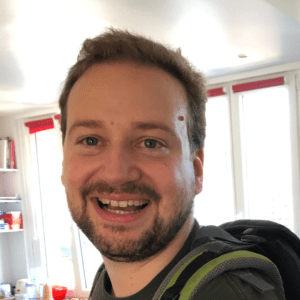
Nicolas Renier
Paris Brain Institute, FranceNicolas Renier is interested in how molecular cues and experience collaborate to shape the development and plasticity of neuronal and vascular networks. He started his doctoral training in 2007 at the Vision Institute in Paris in the laboratory of Alain Chédotal. His work detailed the importance of crossed axons in the formation of functional circuits and maps in the brain. He then moved to the laboratory of Marc Tessier-Lavigne in 2012 at the Rockefeller University in New York City where he co-developed methods to map the brain and other organs in 3D using tissue clearing and light sheet microscopy. These tools enable fast and streamlined 3D analysis of neuronal activity and axonal projection patterns in the mouse brain. Nicolas started his own laboratory in 2017 at the Paris Brain Institute, where he is developing a research program to understand the mechanisms and physiological impact of cerebral plasticity during development and in the adult life. His independent work led so far to 1) the development of a methodology to generate whole brain maps of the microvascular cerebral network in the mouse in physiological and pathological conditions and 2) How brain plasticity during pregnancy can shape some maternal behaviors.
Nicolas Renier
Paris Brain Institute, France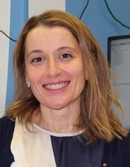
Maria Robles
Ludwig-Maximilians-Universität München, GermanyMaria Robles studied Biology at the University of Leon (Spain) to then moved to Madrid (Universidad Autonoma) to do her doctorate degree studying apoptosis in the immune system. After that she did her postdoctoral work in the laboratory of Charles Weitz (Harvard Medical School) where she established the first in vivo system to identify circadian core clock components by affinity purification-mass spectrometry. She then joined the laboratory of Matthias Mann (Max-Planck Institute of Biochemistry) with a Marie Curie Fellowship to pioneer the application of quantitative proteomics to the circadian field, describing for the first time endogenous daily rhythms of proteome and phosphorylation in total mouse livers as well as in isolated mitochondria. Since April 2017 Maria is a Tenure Track Professor at the LMU Munich, her research focuses on the study of circadian clock and sleep mechanisms from molecular to system levels using mass spectrometry-based quantitative proteomics.
Maria Robles
Ludwig-Maximilians-Universität München, Germany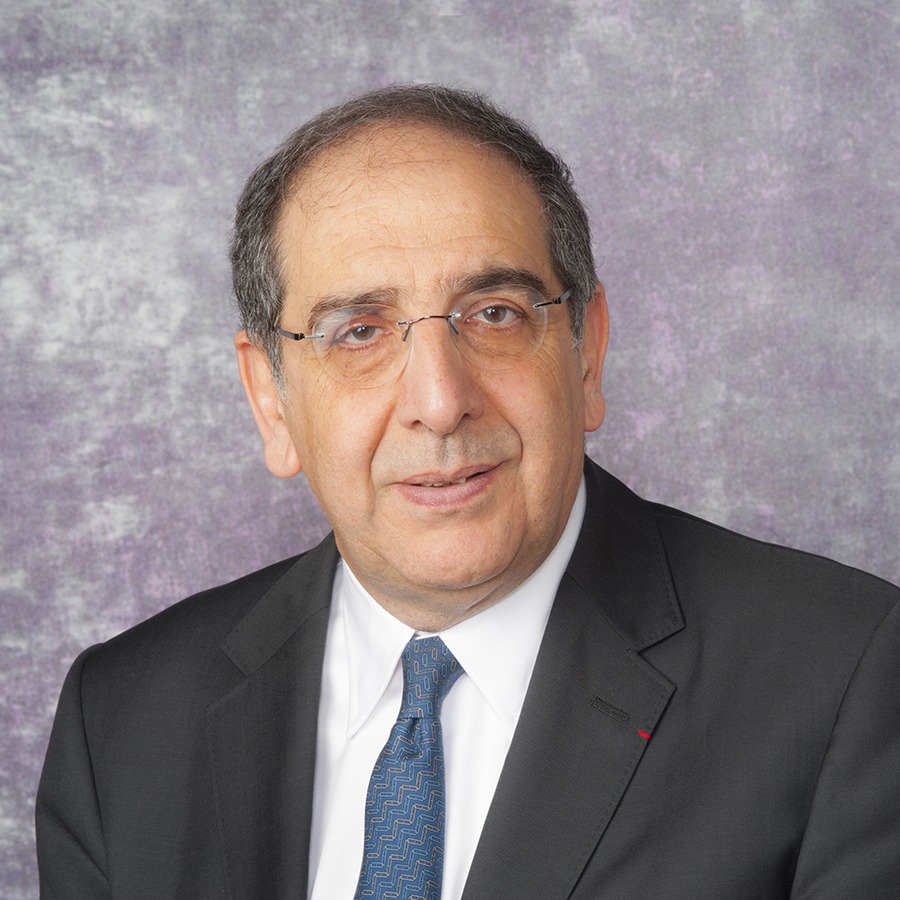
José-Alain Sahel
University of Pittsburgh School of Medicine, USA & Sorbonne Université, FranceDr. Sahel is a clinician-scientist who developed a groundbreaking neuroprotective therapeutic strategy to rescue sight, now in translation, and launched first-in-man studies with electronic retinal implants, gene and cell therapies to restore vision in patients with retinal dystrophies. He is the lead ophthalmologist on a clinical trial documenting for the first time partial visual recovery after optogenetic therapy in blind patients with late stage inherited retinal disease. His works extend toward novel methods for studying visual responses from the retina to the brain, in correlation with structural parameters and functional vision in daily activities. Distinguished Professor and Chairman of the Department of Ophthalmology at the Pittsburgh School of Medicine, Exceptional Class Professor of Ophthalmology at Sorbonne Université, Founding Director of Institut de la Vision, Paris, France, Director of Institut Hospitalo-Universitaire FOReSIGHT. Co-author of over 680 peer-reviewed articles and 40 patents. Sitting on several Editorial Boards, including Science Translational Medicine. Elected member of six Academies (e.g. Académie des Sciences-Institut de France, Leopoldina Academy). Doctor Honoris Causa of the University of Geneva. Recipient of numerous awards, including Liura Liggett-Gund Award from Foundation Fighting Blindness and the 2021 Falling Walls Breakthrough in Life Sciences.
José-Alain Sahel
University of Pittsburgh School of Medicine, USA & Sorbonne Université, France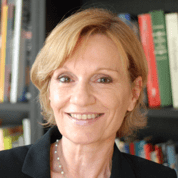
Arleen Salles
Uppsala University, Sweden and Centro de Investigaciones Filosoficas, ArgentinaArleen Salles, is a Senior Researcher in philosophy at the Center for Research Ethics and Bioethics (CRB) at Uppsala University and Director of the Neuroethics Program at CIF (Centro de Investigaciones Filosoficas) in Buenos Aires, Argentina. She is a tenured professor of philosophy at Universidad Argentina de la Empresa (Buenos Aires, Argentina) and is also affiliated to Weill Cornell Medical College, (NY, United States). She is the Deputy Leader of the Responsible Research and Innovation Work Package of the EU-flagship Human Brain Project where she is a researcher and leads the task Neuroethics and Engagement. She is also Board member of the International Neuroethics Society and serves as a member of the International Brain Initiative’s Neuroethics Working Group. Salles received her M.A and Ph.D in philosophy from State University of New York at Buffalo, USA.
Her current research focuses on neuroethics, particularly the normative, epistemic, and ontological implications of neuroscientific findings and its applications (including brain inspired artificial intelligence).
Arleen Salles
Uppsala University, Sweden and Centro de Investigaciones Filosoficas, Argentina
Michal Schwartz
The Weizmann Institute of Science, IsraelSchwartz is Professor of Neuroimmunology at the Weizmann Institute of Science. She served as the president of the International Society of Neuroimmunology (2016-2018). Schwartz received her BSc, cum laude, from the Hebrew University, Jerusalem, and her PhD in Immunology from the Weizmann Institute. She is the world pioneer in breaking the long-held dogma regarding the relationships between the central nervous system and the immune system. She was the first to discover (1998) that blood-borne macrophages are needed for brain repair, and the unexpected fundamental role of the immune system in supporting life-long brain functional plasticity and neurogenesis. Deciphering the mechanism led her to propose that aging or exhaustion of the immune system plays a key role in perpetuating Alzheimer’s disease (AD) and dementia, and to suggest a novel treatment for AD, which harnesses the immune system to help the brain. The treatment approach is under expedited development towards first-in-human trial, supported by an award from the Alzheimer’s Association with the Gates Foundation. Her insights had significant impact, reflected in her publications in leading journals and high citation number (H factor 110, Google Scholar). Schwartz was twice granted an advanced ERC award, as well as receiving numerous prestigious national and international awards for her outstanding achievements, including the 2002 Friedenwald Award from ARVO, for outstanding contribution to vision research and the Distinguished G. Heiner Sell Memorial Lectureship in 2002 for outstanding achievement in the field of spinal cord injury. More recently Schwartz received the Blumberg Prize for Excellence in Medical Science (2015), and the 2017 Rappaport Prize for Excellence in the Field of Biomedical Research. She was chosen in 2019 as Outstanding Mentor of the Year by the Israeli Neuroscience Society; 15 of her former graduate students currently hold academic faculty positions in Israel, USA, Europe and Australia. In 2019 Schwartz received the EMET prize, one of the most prestigious Israeli awards for academic and professional achievement.
Michal Schwartz
The Weizmann Institute of Science, Israel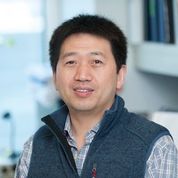
Song-Hai Shi
Tsinghua University, ChinaSong-Hai Shi, PhD, is a Professor in School of Life Sciences and IDG/McGovern Institute for Brain Research at Tsinghua University, China. He received his undergraduate training on Biological Sciences and Biotechnology at Tsinghua University, China, and obtained his Ph.D. degree on Genetics and Neuroscience from Cold Spring Harbor Laboratory & State University of New York at Stony Brook, New York. He then completed his postdoctoral training at University of California at San Francisco. Before joining Tsinghua University, he was a Member and Professor at the Memorial Sloan Kettering Cancer Center and Weill Cornell Medical College in New York City. Dr. Shi’s research focuses on understanding the mechanisms underlying the assembly and operation of neural circuits in the neocortex under normal and disease conditions. His expertise and achievement have been recognized by numerous awards, including the Amersham Biosciences and Science Grand Prize for Young Life Scientists, the McKnight Scholar Award, the Blavatnik Award for Young Scientists, and the Howard Hughes Medical Institute (HHMI) Faculty Scholar Award.
Song-Hai Shi
Tsinghua University, China
Nathan A. Smith
School of Medicine and Dentistry at the University of Rochester, USADr Nathan A. Smith is the new Associate Dean for Equity and Inclusion in Research and Research Education and Associate Professor of Neuroscience in the School of Medicine and Dentistry at the University of Rochester. Previously, Dr. Smith served as Director of Basic Neuroscience Research, Principal Investigator in the Center for Neuroscience Research at Children's National Research Institute, and Assistant Professor of Pediatrics and Pharmacology & Physiology at George Washington University School of Medicine and Health Sciences. He received his B.S. in Biology from Xavier University and his M.S. and Ph.D. in Neuroscience from the University of Rochester School of Medicine and Dentistry. Upon graduating in 2013, he became the first African American to receive a Ph.D. from the neuroscience program at the University of Rochester School of Medicine. Subsequently, Dr. Smith conducted his postdoctoral research at the University of Utah, Boston University, and Children's National Hospital. Dr. Smith has received numerous honors and awards in his career, including being named a 2021 Fellow of the American Association for the Advancement of Science (AAAS), named by Cell Press as one of 1000 most Inspiring Black Scientists in America in 2020, receipt of the 2019 Neuroscience Alumni Award from the University of Rochester, and receipt of the 2018 Children's National President's Award for Innovation in Research.
Research
Projects in my laboratory focus on “Neuro-Glia” interactions. My research explores the understudied and novel mechanisms by which neuromodulators mediate the interactions between neurons, astrocytes, and microglia in both normal and disease states. By studying how neuromodulators mediate the unique interactions between these three cell types, we will elucidate their coordinated functions in the normal, healthy brain and how disruptions of neuronal-glial crosstalk will contribute to disease processes such as ADHD, epilepsy, and insulin resistance. To that end, we hope these studies will provide valuable insight on the role of glia in pathophysiology, which is under-recognized in developmental disorders, with the hope of revealing pathways suitable for manipulation to alter disease progression in the central nervous system. To accomplish these goals, we employ a combination of transgenic animals, electrophysiology, pharmacology, behavioral assays, and 2-Photon Ca2+ imaging in acute slices and awake behaving animals.
Nathan A. Smith
School of Medicine and Dentistry at the University of Rochester, USA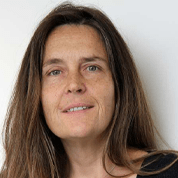
Nathalie Spassky
Institut de Biologie de l’Ecole Normale Supérieure, FranceNathalie Spassky is a research director at INSERM in France. After earning her PhD in Neuroscience in Université Paris 6, she completed a post-doctoral stay at UCSF (San Francisco, USA). Since 2010, she is heading the team Cilia biology and neurogenesis at the IBENS, Paris. Her major research interests are in the mechanisms of glial cell development. For the past 15 years, her team combined biophysical approaches, genetics and cellular biology to understand the mechanisms underlying multiciliated ependymal cells development and how it can contribute to pathologies when defective.
She is the recipient of the ERC consolidator program (2014) and received the Camille Wohringer prize from the Fondation de la recherche médicale (2017).
Nathalie Spassky
Institut de Biologie de l’Ecole Normale Supérieure, France
Thomas C. Südhof
Stanford University School of Medicine, USAThomas Christian Südhof is a neuroscientist whose work has described how neurons communicate with each other at synapses, and how such communication becomes impaired in neuropsychiatric and neurological diseases. He is known particularly for the discovery of how synapses rapidly release neurotransmitters, and how neurons form synapses via engagement of trans-synaptic adhesion molecules. Dr. Südhof was born in Göttingen, Germany, and obtained his M.D. and doctoral degrees from the University of Göttingen. He performed his doctoral thesis work at the Max-Planck-Institut für biophysikalische Chemie in Göttingen with Prof. Victor P. Whittaker on the biophysical structure of secretory granules. Dr. Südhof trained as a postdoctoral fellow with Drs. Mike Brown and Joe Goldstein at UT Southwestern in Dallas, TX, and elucidated the structure, expression and cholesterol-dependent regulation of the LDL receptor gene. Subsequently, Südhof served on the faculty of UT Southwestern in Dallas, where he was, among others, the founding chair of the Department of Neuroscience. In 2008, Südhof moved to Stanford University, where he currently holds the position of Avram Goldstein Professor in the School of Medicine. Südhof’s research originally focused on how neurons in brain communicate with each other at synapses. Specifically, his initial work analyzed the mechanisms by which an action potential in a presynaptic neuron triggers the secretion of neurotransmitters, which initiates synaptic transmission. This work revealed a general mechanism of regulated secretion. More recently, Südhof’s studies have centered on the question of how synapses in brain are formed and how their properties are shaped, resulting in the identification of trans-neuronal signaling mechanisms that control synaptic connections in brain. Moreover, Südhof’s work has addressed how these synaptic connections become impaired in neuropsychiatric disorders, in particular schizophrenia and Alzheimer’s disease, with the hope of gaining insight into possible new therapeutic avenues.
Related Links
HHMI website https://www.hhmi.org/scientists/thomas-c-sudhof
Stanford website https://med.stanford.edu/sudhoflab.html
Thomas C. Südhof
Stanford University School of Medicine, USA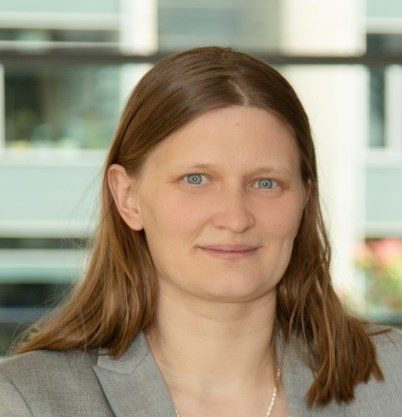
Tatjana Tchumatchenko
University of Mainz Medical Center, University of Bonn Medical Center, GermanyTatjana Tchumatchenko (DE) is a computational neuroscientist professor at the Institute for physiological chemistry, University of Mainz Medical Center, and group leader at the Institute of Experimental Epileptology and Cognition Research, University of Bonn Medical Center. Prof. Tchumatchenko group’s models address the molecular, synaptic, and neuronal mechanisms underlying neuronal circuit computation. Investigating the dynamics of protein synthesis in dendrites, they found that dendritic mRNA and protein distributions of CamKIIa, one of the most prominent synaptic plasticity proteins, can be described by two tractable differential equations `{`Fonkeu et al. NEURON 2019`}`. Alongside computational research at the synaptic level, their group actively addresses neural circuit computations.
Tatjana Tchumatchenko
University of Mainz Medical Center, University of Bonn Medical Center, Germany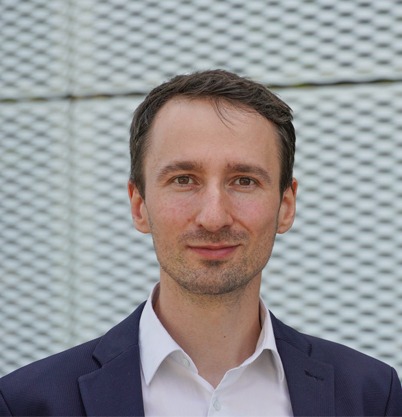
Steffen Tiedt
Institute for Stroke and Dementia Research, LMU, Munich, GermanyScientific training
2014 – 2018 PhD training
Graduate School of Systemic Neurosciences, LMU
Institute for Stroke and Dementia Research (Director: Prof. Martin Dichgans)
Title: „The role of blood-based biomarkers in ischemic stroke“
Evaluation: Very good
2009 – 2015 MD training
Institute of Physiology, LMU (Chair: Prof. Magdalena Götz)
Title: „Regeneration of neurons after brain injury: role of the STAT-signaling
pathway in the inhibition of neurogenesis of reactive astrocytes“
Evaluation: Summa cum laude
Medical training
2013 – 2021 Residency in Neurology
Institute for Stroke & Dementia Research, LMU (Director: Prof. M. Dichgans)
Department of Neurology, LMU (Director: Prof. M. Dieterich)
Department of Psychiatry, LMU (Director: Prof. P. Falkai)
2006 – 2013 Medical studies
LMU Munich (Final grade: 1.5, top 10 %)
Harvard Medical School, Boston, MA, USA (2012, all grades: high honors)
Awards and Scholarships
2019 Mentor of the Year (Medical faculty, LMU)
2019 – Clinician-Scientist-Program PRIME (DFG, LMU)
2018 Young Investigator Award (European Stroke Organization)
2018 – 2020 MOMENTE-Program for outstanding postdoctoral researchers (LMU)
2016 – 2018 Clinician-Scientist-Program (Cluster of Excellence SyNergy)
2013 – 2020 Individual research scholarship (Josef-Hackl-Foundation)
2011 – 2012 Program for excellent medical students (MeCuM-StEP, LMU)
2011 Young Researcher, 61. Meeting of Nobel Laureates in Lindau
Steffen Tiedt
Institute for Stroke and Dementia Research, LMU, Munich, Germany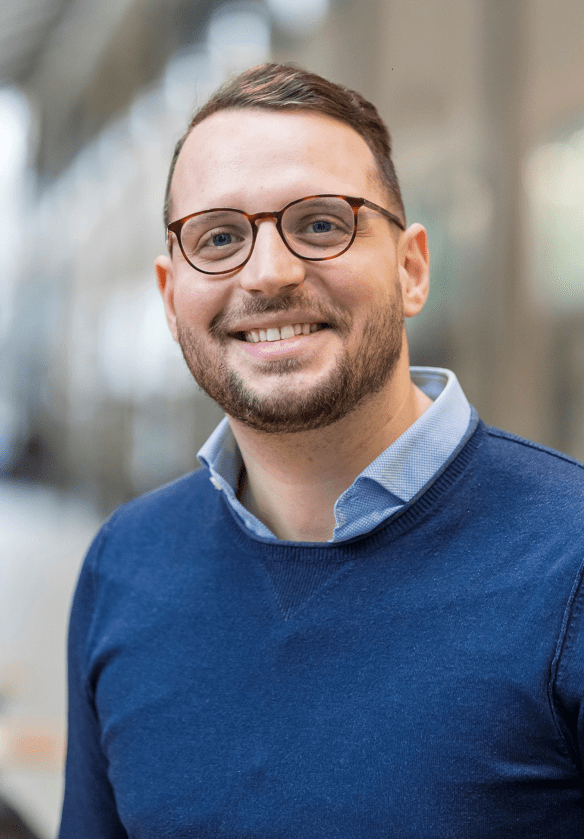
Giacomo Valle
ETH Zurich, SwitzerlandDr. Giacomo Valle received B.S and M.S. degrees in Bioengineering (cum laude), in 2016, from University of Genoa, Italy. Dr. Valle worked as Research Assistant at EPFL, Switzerland and he recently finished the Ph.D in Biorobotics (cum laude) at Sant’Anna School of Advanced Studies Pisa Italy. Dr. Valle is currently a postdoctoral researcher at the NeuroEngineering Laboratory, ETH Zurich, Switzerland.
He is working to create a connection between the human nervous system and bionic limbs developing sophisticated and biomimetic algorithms of neurostimulation able to provide natural sensations on the robotic limbs. His research is trying to close the gap between humans and machines. Combining knowledge of neuroscience, medicine and engineering, Dr. Valle works to create somatosensory neural prostheses able to restoring sensory-motor functions. Dr. Valle is nominated Forbes Italia Under 30 2021 in Science, is also a SNSF BRIDGE PoC Fellow and an ETHZ Ambassador.